VET Summit 2025: Europe unites in Bilbao to shape the future of skills
11/04/2025
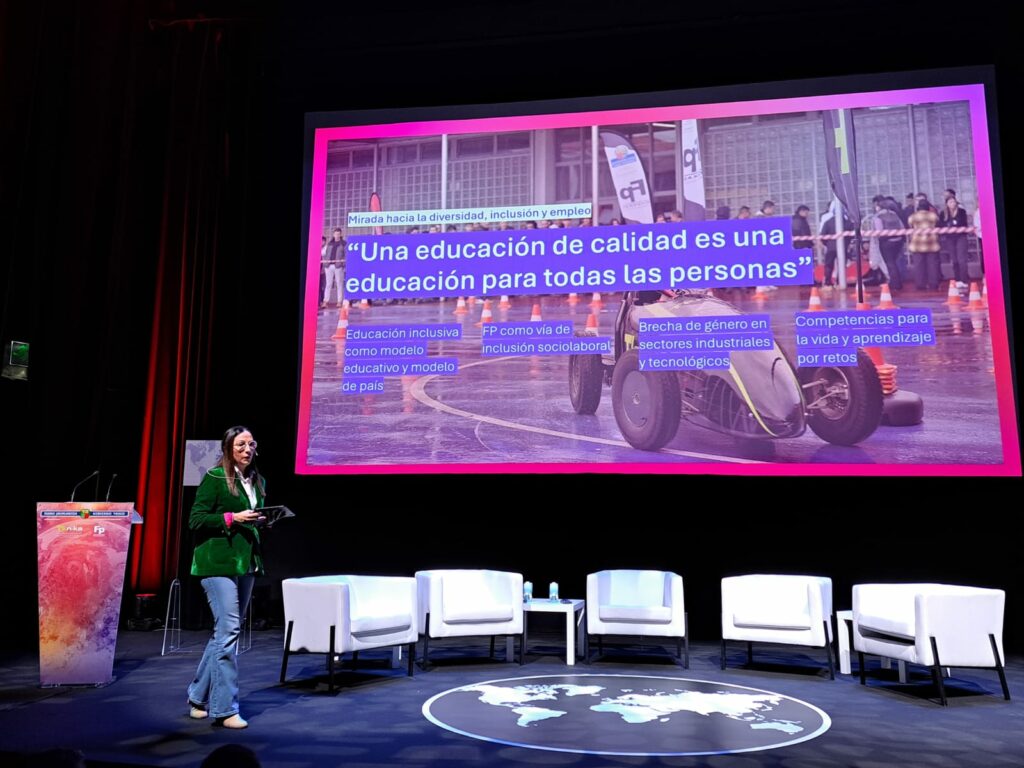
More than 300 participants from across Europe gathered in Bilbao this week for the VET Summit 2025 – Keys to a Global, Digital, Inclusive, and Sustainable Future, a high-level event that placed vocational education and training (VET) at the centre of Europe’s strategy for navigating the challenges of the 21st century.
Organised by the Department of Education of the Basque Government the three-day event highlighted the role of VET in tackling demographic shifts, climate change, digital transformation, and social inclusion. The event counted with the participation of the EARLALL network and in particular of its President Madeleine Jonsson. In addition, the Basque Country hosted the first EARLALL Board meeting of the year.
VET Summit 2025 – Keys to a Global, Digital, Inclusive, and Sustainable Future
The summit opened on 8 April with Tknika Open Days, offering participants a deep dive into the cutting-edge innovation behind Basque VET. Tknika, the region’s flagship VET applied research centre, showcased its work in areas such as 3D printing, robotics, green technologies, and cybersecurity. The visit set the tone for a summit that was as much about ideas as it was about practical solutions.
The main event took place on 9 April at one of Bilbao’s most iconic venues — the Guggenheim Museum. In her opening remarks, Begoña Pedrosa Lobato, Basque Minister of Education, welcomed the delegates and emphasised that education must not only adapt to global shifts, but lead them.
“In a complex, ever-changing world, education must be the cornerstone of our response,” she said. “We need a VET system that is inclusive, accessible, and capable of drivingreal transformation — from reducing gender gaps in tech to ensuring everyone has a path to the labour market.”
She was followed by Esther Monterrubio, Spain’s General Secretary for Vocational Training, who offered a national perspective on the rollout of Spain’s VET Law. Monterrubio defended the role of Dual VET in meeting the evolving demands of the labour market and ensuring young people have the skills needed to thrive.
The summit’s central panel discussion — A Global VET: Digitalization, Sustainability, and Inclusion from International Networks — brought together key European and international voices, including WFCP, EfVET, CoP-CoVE, and EARLALL.
Speaking on behalf of EARLALL, Madeleine Jonsson, President of the network and representative of Region Västra Götaland (Sweden), described the moment as critical for VET across Europe:
“I had the privilege to join a powerful conversation on how we can strengthen VET through digitalisation, inclusion, and sustainability — all set against the stunning backdrop of the Guggenheim Museum,” she said.
Jonsson pointed to demographic decline as a key challenge facing many regions. “It requires us to rethink how we deliver VET and invest in new, innovative approaches.” She also noted the urgent need to elevate the image of VET to attract more learners — a topic that will take centre stage at EARLALL’s upcoming General Assembly in Mechelen, Belgium this November.
She highlighted that a major concern is the high number of young people who are either not qualified for secondary education or have dropped out early. In the region alone, there are 28,000 NEETs (Not in Education, Employment, or Training) between the ages of 19-29, which is a worrying statistic when compared to the entire population of Sweden. This situation not only affects the workforce but is also tied to the well-being of individuals. On top of that she added that there is a pressing need to promote a culture of lifelong learning and shift mindsets to encourage gender equality.
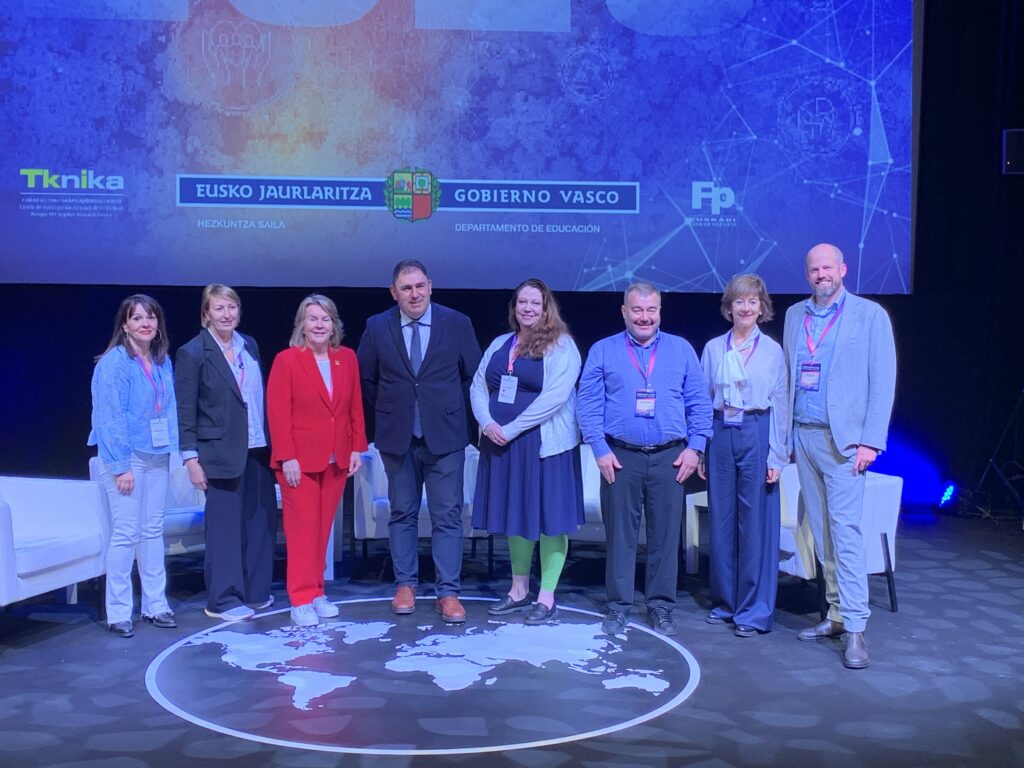
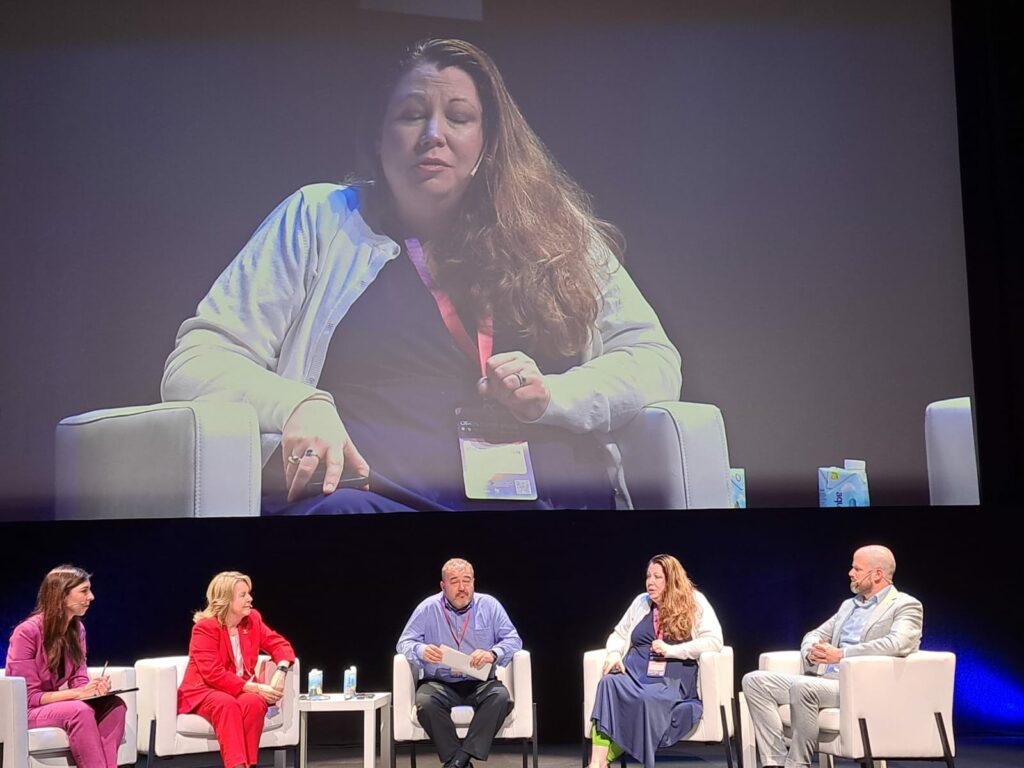
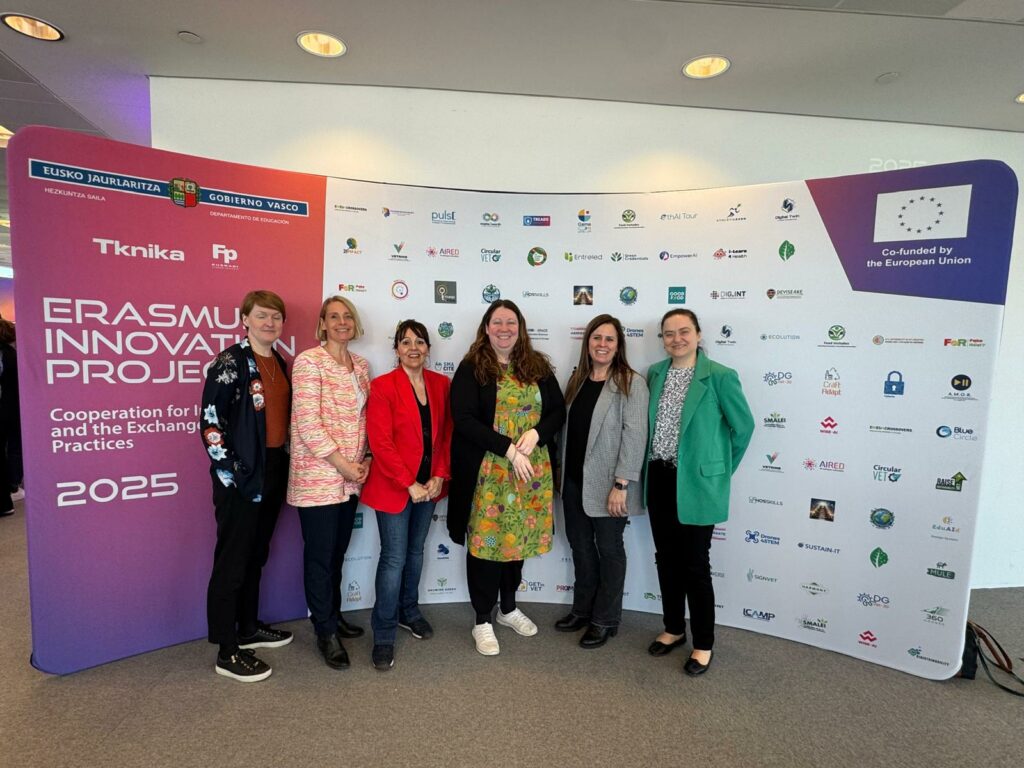
The morning concluded with a presentation by Jon Labaka, Vice-Minister for VET in the Basque Government, on how comprehensive vocational training supports both economic growth and social development. He explained participants how the Basque VET system is structured in three Direction and three Agencies (IVAF, Tknika and iTLEnt) to serve people and businesses in the region. Teachers and students along the network of 184 VET centres are the real promoters of innovation and change.
In the afternoon, the summit shifted from theory to practice as participants visited a range of Basque VET centres, offering hands-on exposure to education in sectors such as green energy, robotics, creative industries, and gastronomy — underscoring the dynamic role VET plays in regional innovation.
The VET Summit concluded on 10 April with a day dedicated to project dissemination, highlighting best practices and promoting collaboration within the Erasmus+ KA2 community.
The session was opened by Jon Labaka, and Inge Gorostiaga Luzarraga, Directora de Transformación Digital y Aprendizajes Avanzados, marking it as a key event for the Basque Country to showcase its VET excellence, internationalisation efforts, and commitment to project dissemination.
Among the featured projects were two with EARLALL’s active participation:
- SMALEI – Sustainability Matrix for ALE Institutions, recently concluded, leaves a lasting legacy through Policy Recommendations and a Roadmap developed by TKNIKA, along with other valuable resources [available here].
- LCAMP – Learner Centric Advanced Manufacturing Platform for Centres of Vocational Excellence (CoVEs), coordinated by the Basque Government, was also presented. This was a perfect moment to promote the upcoming LCAMP Networking Camp, taking place 13–15 May in Sweden, and to invite stakeholders to join the LCAMP Alliance.
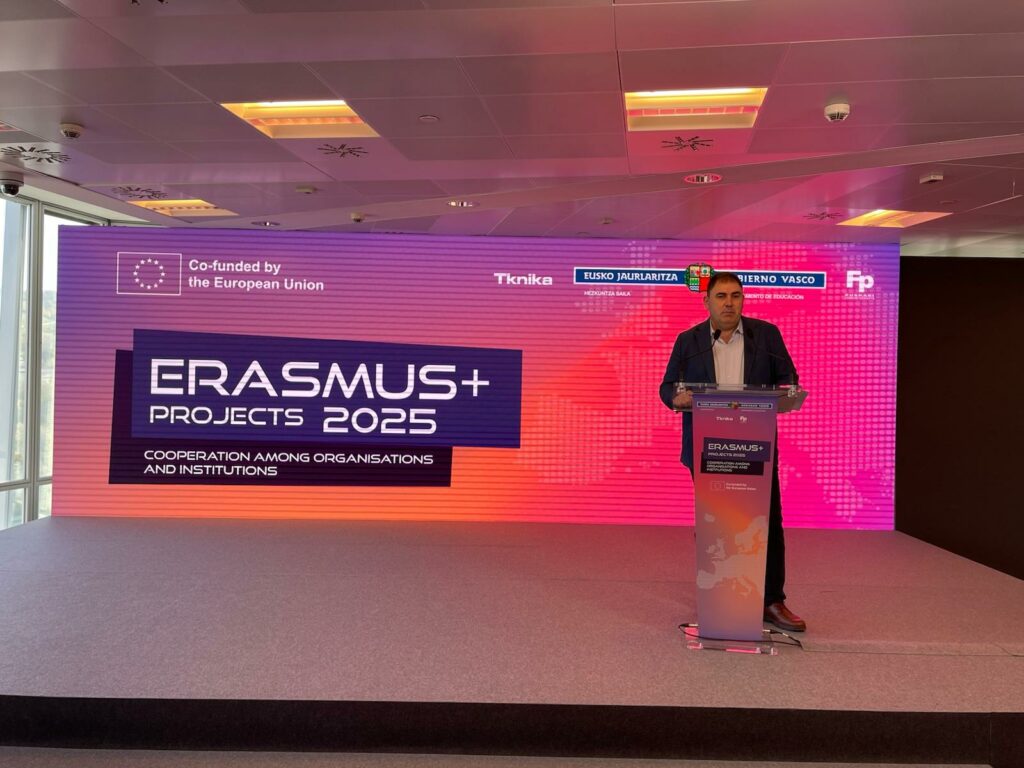
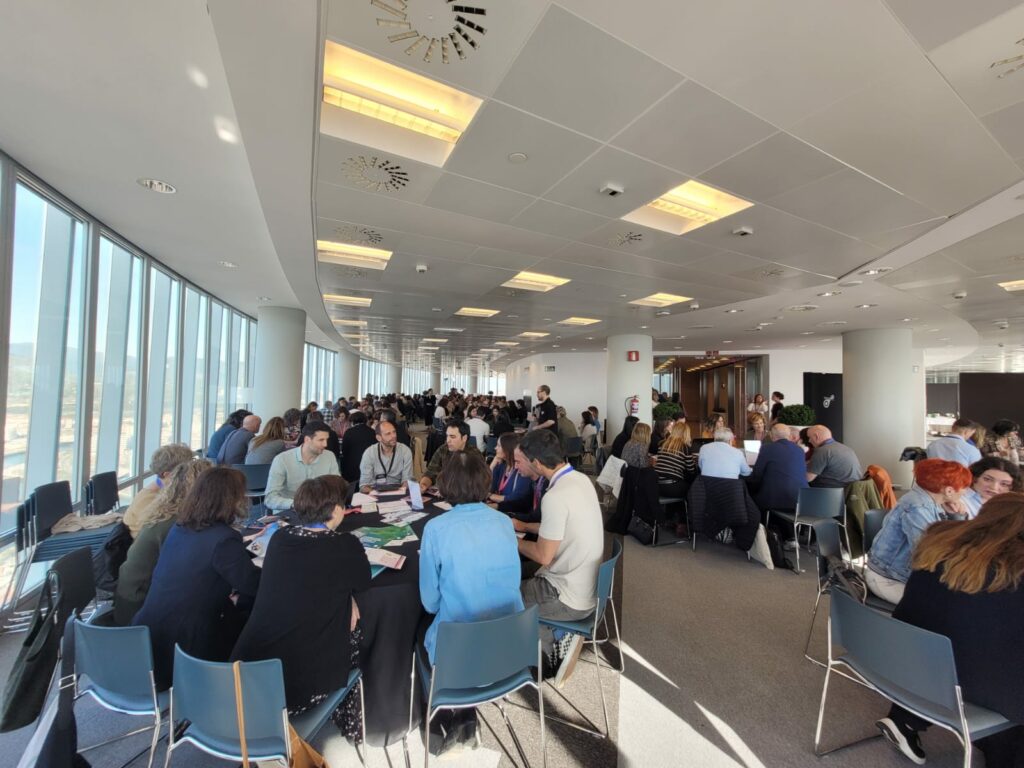
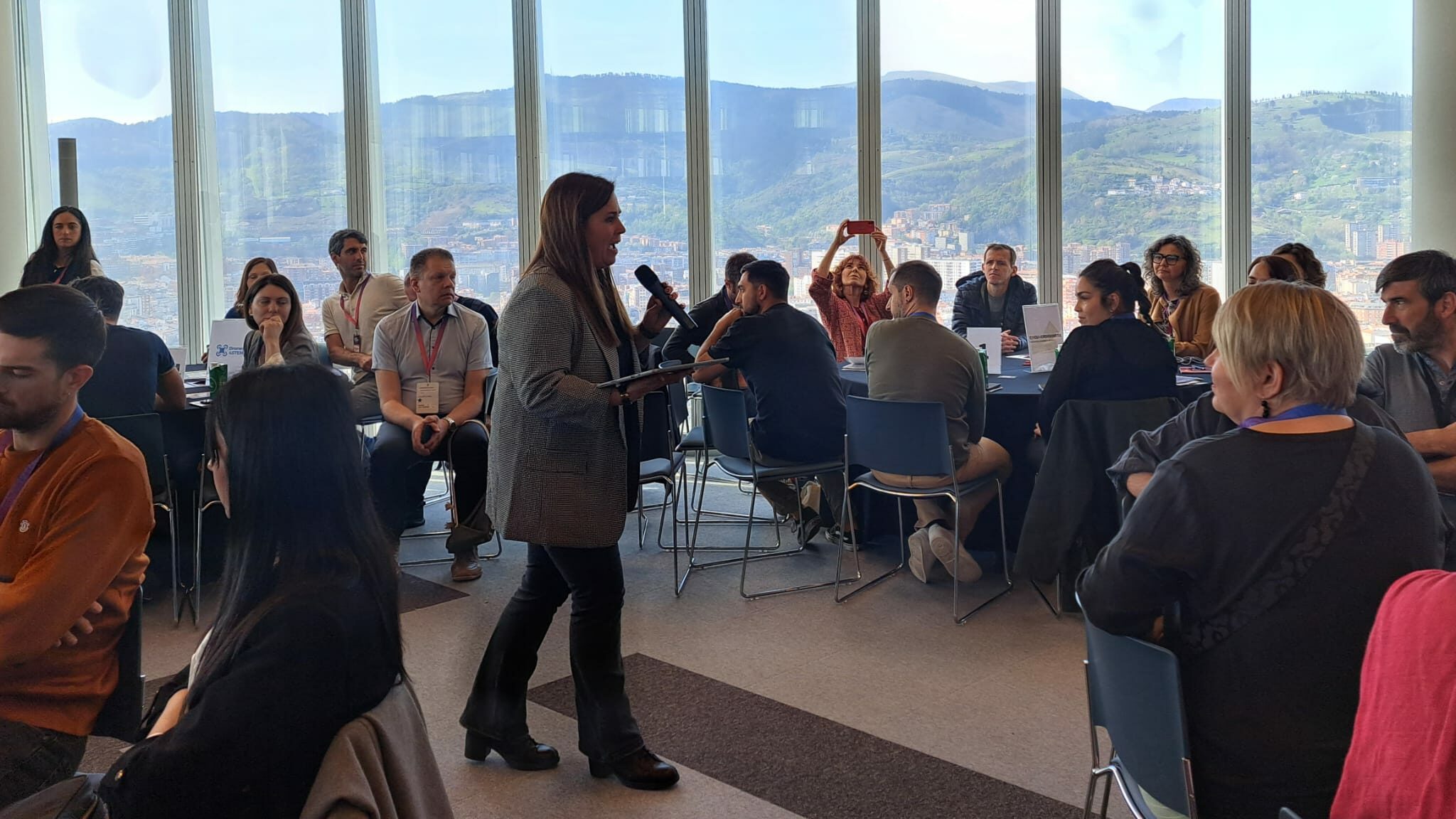
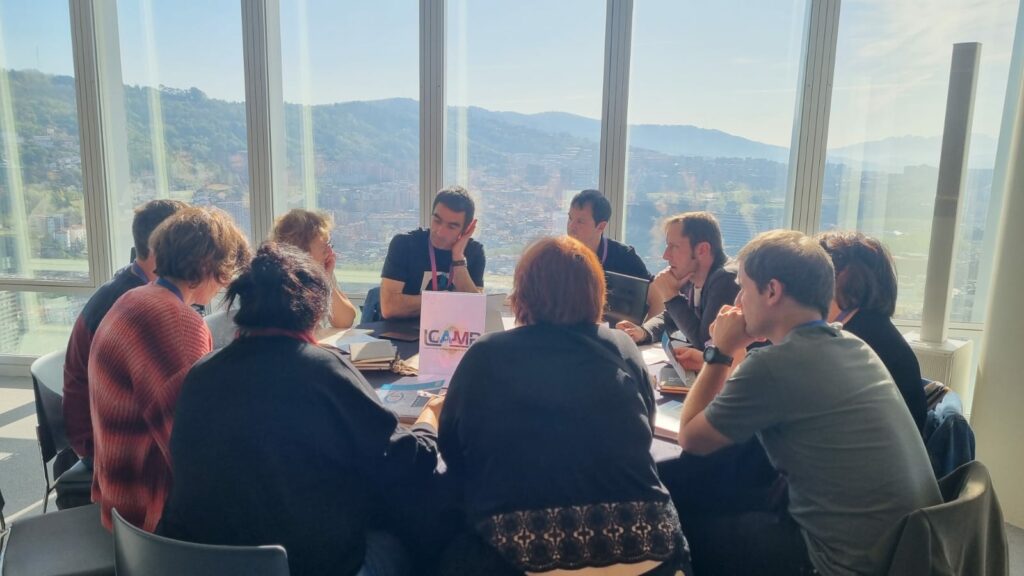
As the summit wrapped up participants left with a renewed sense of purpose and cooperation. Across languages and borders, the message was clear: strong, inclusive, and future-ready VET systems are essential to building resilient regions and a more just and sustainable Europe.




